
Alphabetical Menu
Chronological Menu
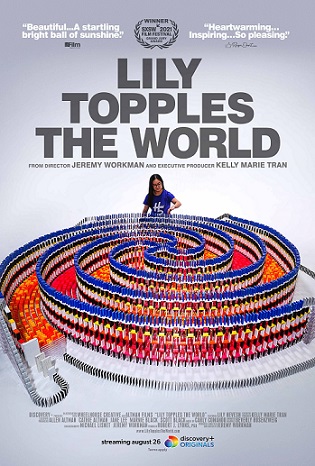
The vital and haunting doc, Lily Topples the World is a documentary about Lily Hevesh, a 20-year-old domino artist who's the only woman in her field. Director Jeremy Workman sheds some light on Lily's work as a domino artist/toppler and how she developed her own brand of Dominos. The mention of how her American parents adopted her from China when she was a baby is too brief and comes a little too late into the film. It's the most interesting and moving part of the doc because it illuminates what Lily is like behind the curtain, so-to-speak. She comes across as a warm, charismatic and diligent human being whose passion for domino art is palpable. She's a good person and, above all, a human being with a heart, mind and soul like everyone. It's disappointing that Workman doesn't get much substance from Lily about her struggles in life; some struggles are mentioned before the doc moves onto Lily's work. Is this supposed to be a documentary about Lily as a human being? Or just about Lily as an artist? Or both? Or about her being the first woman in her field? Seeing her primarily as an artist without delving much deeper into her life makes Lily Topples the World not nearly as profound or inspirational as it could've been. Lily is indeed talented and it's fascinating to watch her topple her elaborate domino artworks, one of which was used in the movie Collateral Beauty. Watching her talking to little kids about her passion and teaching them some of her domino skills feels heartwarming and the same can be said about Lily's success as a popular domino artist. The words of wisdom at the end, though, sound too pat and try too hard to be inspirational. Without enough insights into the heart, mind and soul of its subject, Lily Topples the World mildly engaging, but often unfocused and underwhelming. It opens at IFC Center via discovery+ after debuting on discovery+ on Thursday, August 26th. Candyman 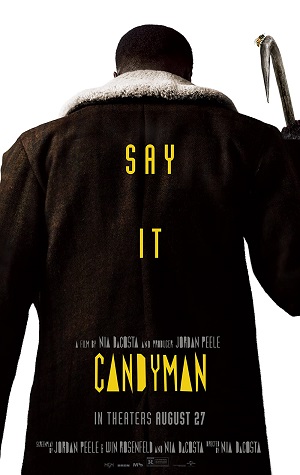 Anthony McCoy (Yahya Abdul-Mateen II), a visual artist, and his girlfriend, Brianna Cartwright (Teyonah Parris), a gallery owner, have recently moved into a new apartment in the gentrified neighborhood of Cabrini-Green that was terrorized by a supernatural killer, Candyman, who appears when someone says his name five times. When Anthony meets William Burke (Colman Domingo), a longtime resident of Cabrini-Green, he learns about the neighborhood's dark history which he uses as inspiration for his new artworks for the art show "Say My Name" where Candyman gets accidentally summoned when someone says his name five times. The new Candyman begins with the backwards version of the Universal Pictures logo and production company logos and then Candyman shows up within the first few minutes which hooks the audience right away to remind them that they're in for a dark and twisted experience. The screenplay by Jordan Peele, Win Rosenfeld and writer/director Nia DaCosta doesn't introduce the protagonist, Anthony, right away. Instead they follow Anthony's brother-in-law, Troy (Nathan Stewart-Jarrett), as he walks with his boyfriend to Anthony's apartment. Troy tells Anthony the legend of the Candyman which is basically a recap of the original Candyman, so if you've seen that, you'll know what he's talking about. When Anthony learns that Candyman can be summoned by repeating his name five times, it's obvious from the get-go that someone will end up repeating his name at some point. It's also obvious that a bee sting that Anthony gets in the beginning is more than just a regular bee sting. What follows is a horror film that's more creepy than scary, but it bites off more than it could chew as it introduces themes like police brutality, racism and gentrification without exploring them with much depth. It seems more like those themes were tacked onto the screenplay out of necessity to make it more timely and provocative. The dialogue, though, is witty at times and uses comic relief well, although the tone does feel uneven at times. The first half of Candyman shows a lot of promise, but it's the second half that veers more into B-movie territory and squanders its opportunity to turn it into more of an "elevated" horror film like Jordan Peele's Get Out and Us. The exposition feels clunky and repetitive while leaving little room for interpretation with a rather conventional ending. Fortunately, what makes Candyman stand out is the cinematography and set design which add plenty of atmosphere. The opening credits alone showing the city of Chicago upside down speaks volumes with the visuals alone. The sound design is also worth mentioning along with the well-chosen musical score. Even the costume design, like the dress that Brianna wears at the beginning, has meaning that can be seen as a foreshadow if you're paying attention. Basically, the film's style becomes part of its substance and turns it into a mesmerizing visual spectacle that makes it hard to look away. There's some blood and gore to be found, but nothing that's too disgusting or over-the-top; this isn't Suspiria, after all. Yahya Abdul-Mateen II gives a solid breakthrough performance as does Teyonah Parris and the always-reliable Colman Domingo. At a surprisingly lean running time of 91 minutes, Candyman is well-produced, stylish and creepy, but ultimately shallow and undercooked. 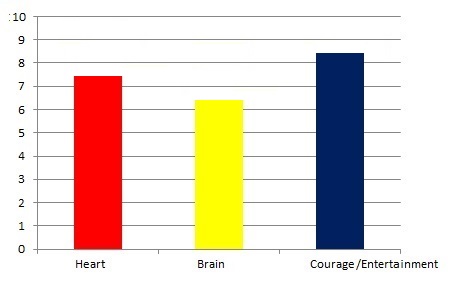 Dramarama 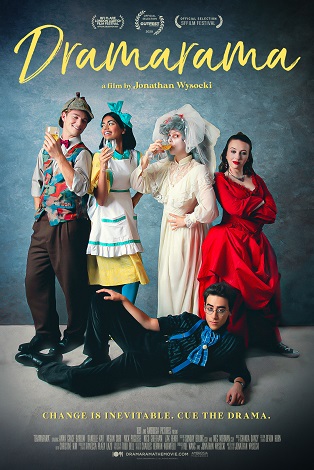 In the summer of 1994, a group of theater friends who just graduated high school gather together for a final murder mystery-themed slumber party. They include Gene (Nick Pugliese), Claire (Megan Suri), Ally (Danielle Kay), Oscar (Nico Greetham) and Rose (Anna Grace Barlow), who hosts the party at her house while her parents are away. Gene, a closeted teen, tries to figure out how to come out to his conservative Christian friends at the party. Writer/director Jonathan Wysocki does a wonderful job of introducing the five friends to the audience within the first ten minutes in a way that highlights their personalities and bond of friendship with one another. They each arrive at the party in a costume and you can tell right away that they're passionate about theater. Wysocki should also be commended for effectively establishing the story's time and place with references to films like Fried Green Tomatoes and, briefly, The Adventures of Priscilla Queen of the Desert. Even though they have very different plots and characters, Dramarama shares some things in common with The Adventures of Priscilla, Queen of the Desert because they're both about human beings at a crossroads in their life. They struggle to be accepted for who they are in a world that's very alienating and dehumanizing. Both films are also about friendships, compassion and tolerance, and they both deftly balance the lighter and darker elements without going overboard in either direction. Dramamara begins with a light tone and gradually becomes increasingly more serious, provocative and poignant like the John Hughs movies from the 1980's. Refreshingly, though, there's no alcohol, sex or drug use to be found here. The humor comes from the often witty and funny dialogue. There are no cheap sight gags involving poop, vomit, piss or period blood (I'm looking at you, Superbad). No one dies or gets injured, and there's no sci-fi twist here either. It's not a typical coming-of-age film which makes it all the more remarkable. Most importantly, the dynamics between the group of friends and their intimate revelations is what helps to move the narrative forward while keeping it grounded in realism. It's interesting to see how their dynamics and discussions change after they bump into a friend, JD (Zak Henri), who delivers pizza to them. Each of the characters feels like a complex, living, breathing human being with thoughts, feelings, insecurities, regrets, frustrations and more which rise to the surface throughout the party. How Gene comes out won't be spoiled here, but it's handled in a way that feels authentic without any contrivance nor easy answers. Nick Pugliese gives a very moving performance as Gene. He handles the emotional complexities of his role very convincingly. It's truly a breakthrough performance. The other actors and actresses have their own moments to shine and are very-well cast. The film moves along at just the right pace without any scenes that overstay their welcome. The set design helps to remind the audience of the time period, i.e. a box TV. 1994 was a time well before the age of social media and texting when kids weren't glued to their cellphone like they are now. People knew how to have face-to-face conversations much better, so it's all the more refreshing to see and hear teenagers conversing with each other like in Dramarama while giving undivided attention to their friends. At a running time of 1 hour and 31 minutes, Dramarama is witty, wise, heartfelt and refreshingly un-Hollywood. 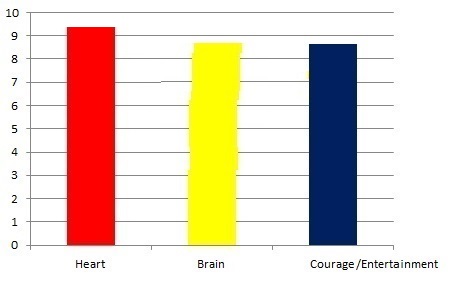 Final Set 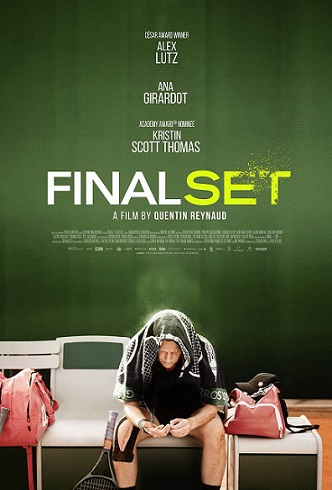 37-year-old Thomas J. Edison (Alex Lutz), a professional tennis player and coach, agrees to play in the French Open despite his bad knee that had been operated on. His wife, Eve (Ana Girardot), and his mother, Judith (Kristin Scott Thomas), both try to discourage him from competing. Like many great sports films, Final Set isn't really about the sport. You don't have to be a fan of tennis to be able to connect with the story. Thomas was once a tennis prodigy during his childhood, but struggles to rekindle that talent in his adulthood. By competing in the French Open, he opens to conquer his adversity, his arthritic knee, which could be any kind of adversity. His real adversity, though, is his overbearing, controlling mother whom he had sought validation from through all of his life. She's very critical of him and has no shame in expressing her lack of faith in him to the media. She's somewhat similar to Harold's mother in Harold and Maude, although, not quite as overbearing as her. Whether or not she's a good parent is a question that's left up to the audience to decide based on their own projections and life experiences. The screenplay by writer/director Quentin Reynaud doesn't judge any of the characters nor are there any villains onscreen. He grasps the concept of "less is more" and the importance of quiet moments and pauses. For example, when Thomas confronts his mother about something that bothers him, she remains silent for around 10 seconds before saying "Sorry" in a soft voice. She doesn't lash out at him or invalidate his feelings. At the same time, she doesn't acknowledge her actions that she's sorry for nor does she acknowledge the consequences of her actions. Is she truly remorseful? Thomas gave her a clear-cut boundary, so will she cross it again? That's left for the audience to interpret. The same can be said for the final scene before the end credits roll which feels abrupt at first and lacks the closure that you'd expect, but it does have closure the more you think about it.
Fundamentally, Final Set is a coming-of-age movie. Thomas has to stop letting his mother treat him like a little kid and learn how to seek validation within himself. It's the dynamic between the two of them that makes the screenplay by writer/director Quentin Reynaud so engaging, moving and illuminating. The MacGuffin that Thomas truly seeks is not something tangible like a tennis trophy, but rather something far more interesting, intangible and human: freedom from his toxic, emotionally abusive mother. Also, Quentin Reynaud includes just the right amount of flashbacks without distracting from the narrative momentum, and he wisely avoids voice-over narration, schmaltz and melodrama.
Alex Lutz and Kristin Scott Thomas give terrific performances that add even more emotional depth, nuance and authenticity to the film. Their scenes together are among the most emotionally gripping scenes because their performances feel natural and real, even when they just sit and talk. When it comes to the tennis scenes, that's where Final Set falters a bit and could've been shot better to add more suspense. The tennis games during the French Open are shot in a choppy, rushed way that makes them hard to follow, especially for audience members who love tennis. Battle of the Sexes is an example of a movie with tennis games that are filmed much more smoothly which makes those scenes more exciting and gripping. Again, Final Set isn't really about tennis, the choppy camera work during the tennis scenes is a forgivable flaw. At a running time of 1 hour and 45 minutes, Final Set is genuinely poignant, captivating and profound. 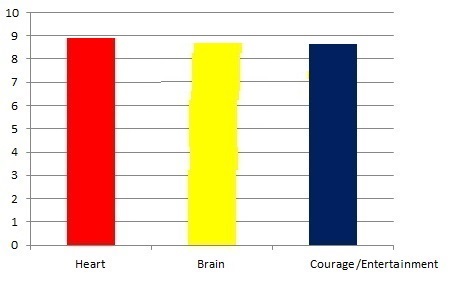 Isabella 
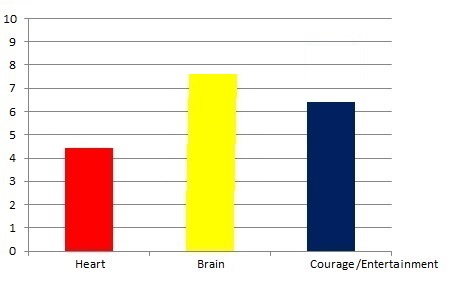 Rushed 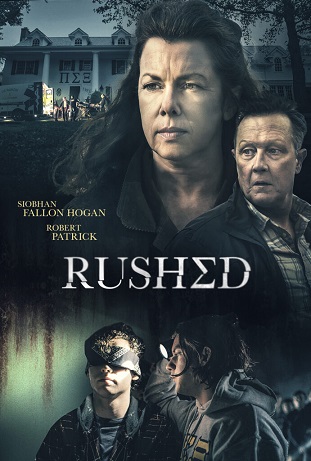
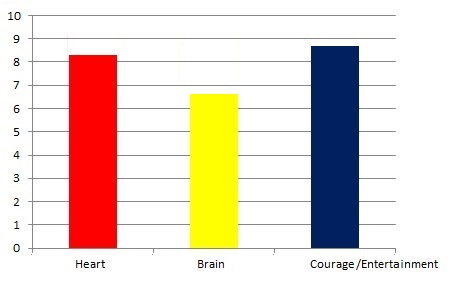 Together  A couple, He (James McAvoy) and She (Sharon Horgan), struggle to get along while in lockdown during the Covid pandemic. They haven't split up yet because of their young son, Artie (Samuel Logan). The unnamed boyfriend and girlfriend who live together initially like the kind of characters you'd expect in a screwball comedy because they get on each other's nerves. In the witty screenplay by Dennis Kelly, they bicker and banter from the very first frame like Cary Grant and Katharine Hepburn in Bringing Up Baby. The audience gradually learns more about each of them, but what's most compelling is discovering their very different personalities. Admittedly, it takes a while to get used to watching them break the 4th wall by talking to the audience like Shirley does in Shirley Valentine, but like in that underrated cult classic, there's some truth, wisdom and intimacy in their interactions with the audience. It's amusing and wickedly funny to watch them quip with one another even if He does come across as annoying and even rude at times. For a film that takes place in just one location with just two main characters to be so entertaining, the dialogue has to feel natural and, fortunately, it does. You become part of the film as well because both He and She talk to you as though you were their best friend who they feel comfortable enough confiding in. There's a lot of unflinching honesty and insights about relationships throughout the film which means that screenwriter Dennis Kelly does a great job of grasping human nature as well the complexity of relationships. As Francois Truffaut once wisely observed, a great film has a perfect blend of Truth and Spectacle. Dennis Kelly and director Stephen Daldry have successfully managed to find plenty of Truth within Together, but, most importantly, the Spectacle within the Truth which is no easy task. There's nothing Hollywood or easy about the relationship between He and She or how they deal with their issues that come to the forefront while they're trapped together during locked down. It would be fair to say that He is trapped in a different way: by the emotional prison that he remains in. To watch him gradually open up and display vulnerability is fascinating and engrossing. James McAvoy and Sharon Horgan are terrific. They're both very well cast and give performances that feel real every step of the way while their characters struggle to navigate through a variety of emotions. They bring plenty of charisma and warmth to their roles which are quite palpable. Most importantly, though, you'll be able to "buy" that they're a couple albeit a dysfunctional one. It's a testament to their acting skills that they're able to handle the dramatic as well as the comedic sides of their roles so effectively. They make what could've been a stuffy chamber piece into a compelling film that feels as perceptive, true-to-life and wise as a Mike Leigh or early Woody Allen film. At an ideal running time of 1 hour and 31 minutes, Together is witty, heartfelt and refreshingly honest. 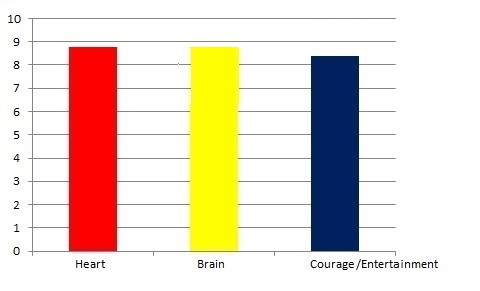 |